Intermittent fasting is such a popular term that you must have come across it. In recent years, this term has gained a lot of popularity as it is seen as a method of losing weight, improving the metabolic health and promoting overall health.
Intermittent fasting is a form of diet which includes creating considerable amount of time gaps between the cycles of eating. Also, it is very flexible and versatile. People can change it and adjust it according to their preference and lifestyle.
In this article, we will tell you about the benefits of intermittent fasting and methods of doing it. We will also explore some safety considerations that we need to keep in mind while doing it. Not only this, we will also provide you with a handful of information which will help you in deciding whether it’s right for you or not. Let’s begin !
1. What is Intermittent Fasting? : First of all, you need to understand that intermittent fasting is not a form of dieting in which you have to starve yourself. It is a pattern of eating in which you have to repeat the cycle of eating and fasting. You don’t have to starve yourself as intermittent fasting focuses on how many times you eat and what you eat.
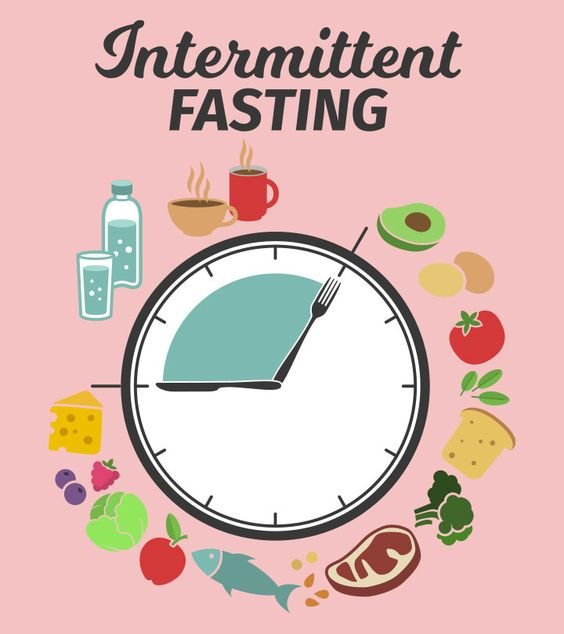
2.Safety Points: As safety comes first, before you begin fasting, you need to understand that along with its benefits, it can also have some drawbacks – but not for everyone ! Benefits of intermittent fasting are numerous but you should not ignore intermittent fasting safety. You should consult a doctor before attempting it if you are pregnant or breastfeeding. Also, if you have diabetes, eating disorders or nutrition deficiency, you should consult a health care provider before beginning with this fast.

3. Advantages Of Intermittent Fasting: One of the biggest advantage of intermittent fasting that went viral is weight loss. No doubt it helps in losing weight but this is not the only benefit that it provides. If someone has developed insulin resistance, then intermittent fasting helps with it. Some research also suggest that intermittent fasting helps in improving our mental health. When we start fasting, the cells of our body start to repair themselves and our metabolism rate improves naturally.
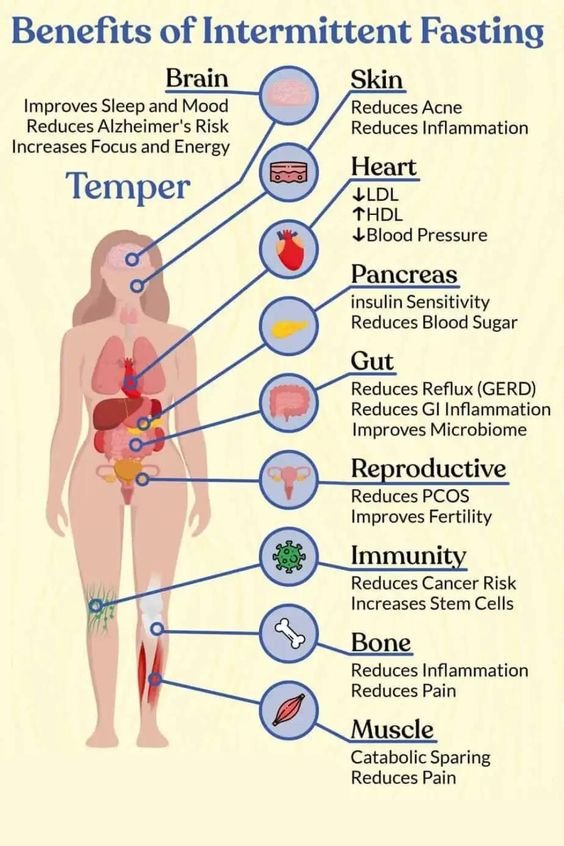
4. Intermittent Fasting Methods: There are a number of methods for intermittent fasting. Each and every individual can personalize it according to their body and requirement. It is very useful as it provides you a flexible time-frame in which you can choose what to eat and when to fast. Many methods of intermittent fasting have gone viral but the most popular one is 16/8 method. In this method, you have to eat within an 8 hour window and then do not eat for the next 16 hours, which will be your fasting period.
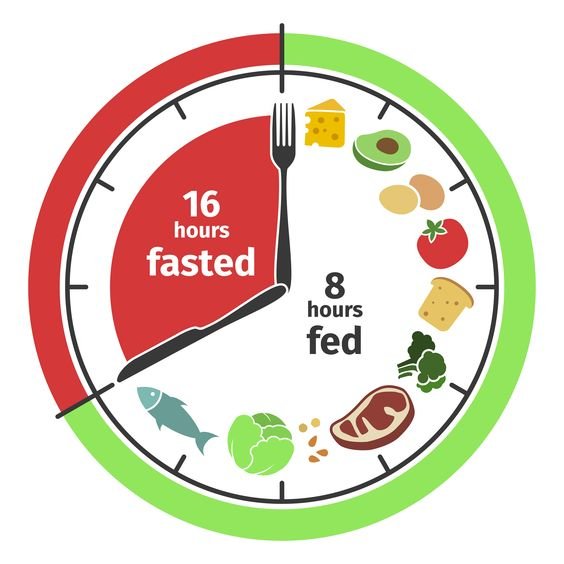
ALTERNATE METHOD: If your body supports, you can also try the 5:2 method. Here, you eat for 5 days of a week and then you fast for the next 2 days. This method of intermittent fasting is not for beginners as it includes fasting for two consecutive days. First of all, you will have to start with a small time-frame of fasting so that you can make your body aware of the fasting pattern, and then slowly increase the time-frame of fasting.
5. Intermittent Fasting Tips: If you are planning to do intermittent fasting, then here are some tips that will help you in getting better results.
• Do not fast for a whole day straight. When you are a beginner, fast like a beginner. Fast only for a few hours and then extend the duration of these hours gradually. In the upcoming days, extend the time duration of fasting until you are able to do it for 12 or more hours.
• Hydration is the key to keep yourself going during the fasting period. Do not limit your water intake. Drink ample amount of water, herbal or organic tea and any other beverage which has no sugar and no calories.
• When your window for eating starts, do not fill your stomach with carbs. Instead choose food that is rich in nutrients. It will support your overall health. It will also help you in getting maximum benefits of intermittent fasting.
• Don’t be rigid on your fasting schedule. If your body feels excessively hungry, then adjust your fasting schedule and eat something. It is not mandatory to follow your intermittent fasting routine as you planned it. Sometimes, you need to make changes according to your body and the way your body responds to intermittent fasting.
• Don’t expect fast results because intermittent fasting is a technique that will change your body initially from within and later from the outside. Be consistent with it and make changes according to your needs and requirements.
Finally, Here are some Pros and Cons of Intermittent Fasting:
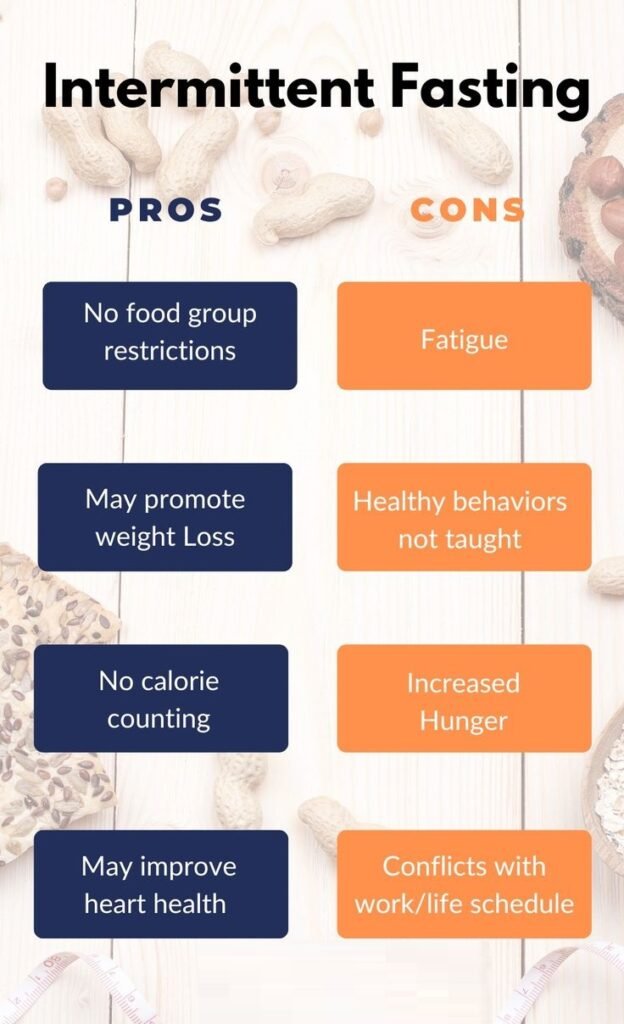
Benefits of intermittent fasting are numerous and if you pursue it for a long term, it also helps you in improving your life expectancy rate. Keeping in mind all the benefits that it provides, you should move forward towards intermittent fasting while keeping all the safety considerations in mind. If you have any health conditions or you have been sick for a long period of time, then you should consult a doctor before starting intermittent fasting.
Also, it is very flexible so if you are a professional, or you are someone who is studying for a tough competitive exam, or someone who stays at home, you can plan it accordingly and choose the intermittent fasting technique which works best for you. If you follow intermittent fasting mindfully and wisely, keeping in mind the safety precautions, it can obviously give you positive results. Good luck !
ALSO READ: 10 Essential Tips For Maintaining a Healthy Lifestyle
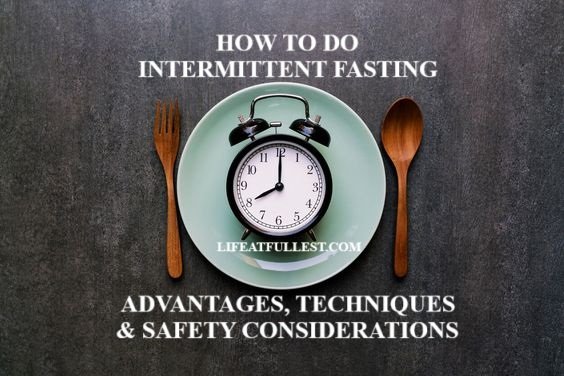






Leave a Reply